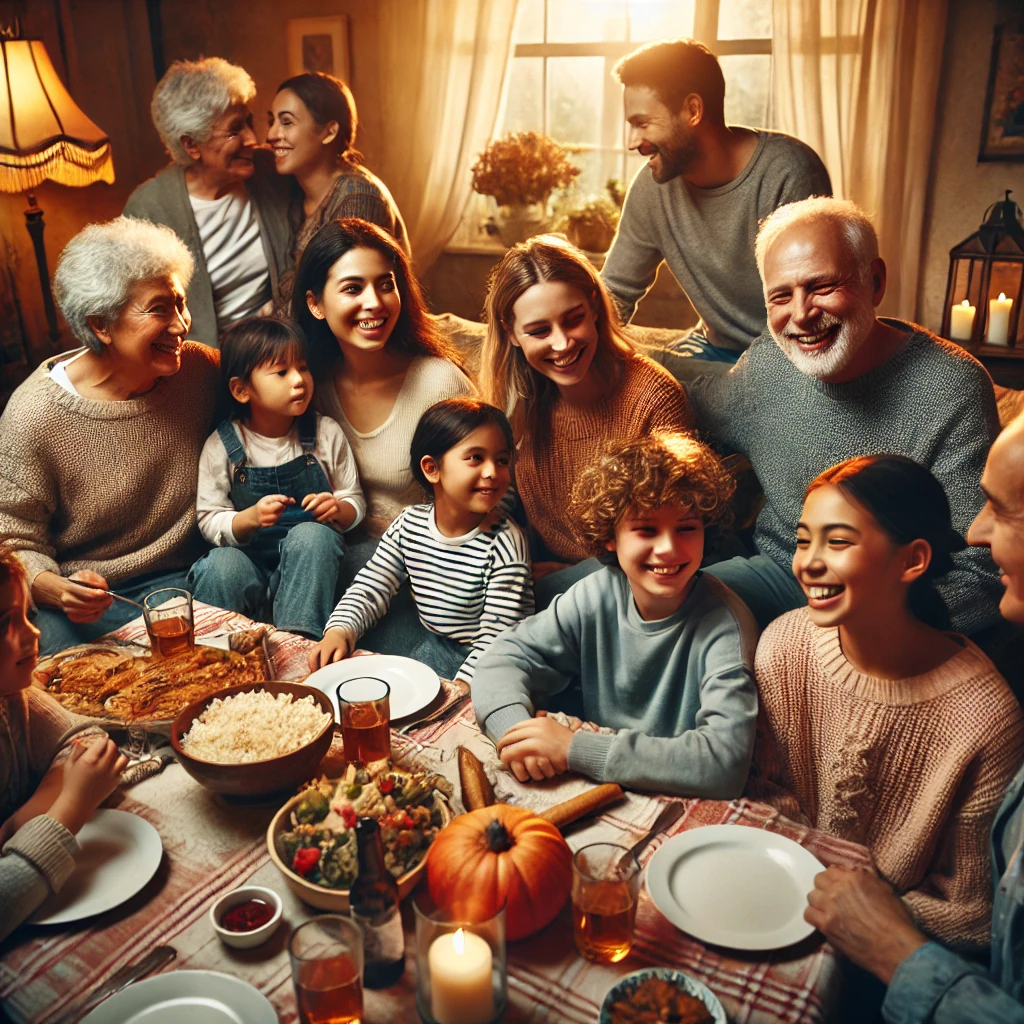What is a Family?
What is a Family?
A family is a group of people who are connected by blood, marriage, adoption, or strong emotional bonds. It is often considered the basic unit of society, providing love, support, and a sense of belonging. Families come in many forms, including:
Nuclear family
– Parents and their children living together.Extended family
– Includes grandparents, aunts, uncles, and cousins.Single-parent family
– One parent raising children alone.Blended family
– A mix of parents, stepparents, and step-siblings.Chosen family
– Close friends or mentors who provide support like a traditional family.
Regardless of structure, families play a crucial role in emotional, social, and economic support.
What does family mean to you?
How will you define a Family?
I would define a family as a group of people who provide love, support, and a sense of belonging to one another. A family can be connected by blood, marriage, adoption, or deep emotional bonds. It serves as the foundation of society, shaping individuals through shared experiences, values, and traditions.
A family is not just about genetics; it’s about care, trust, and commitment. Whether traditional, blended, or chosen, family is where people find comfort, guidance, and unconditional support.
How do you personally define family?
How do you define this family is a good family?
A good family is one where love, respect, and support are at the core of relationships. It doesn’t have to be perfect, but it provides a safe and nurturing environment for its members. Here’s how I define a good family:
- Mutual Respect – Every member values each other’s opinions, feelings, and individuality.
- Love & Affection – Expressing care through kind words, hugs, or simply being there when needed.
- Support System – Encouraging each other’s dreams, standing together in tough times, and celebrating successes.
- Good Communication – Listening to one another, resolving misunderstandings calmly, and expressing feelings openly.
- Trust & Honesty – Family members feel safe sharing their thoughts and emotions without fear of judgment.
- Quality Time – Spending meaningful time together, whether through meals, conversations, or shared activities.
- Forgiveness & Understanding – No one is perfect; a good family forgives, learns, and moves forward.
- Healthy Boundaries – Respecting personal space and individual choices while staying connected as a unit.
A good family is not about wealth, status, or perfection—it’s about creating a home filled with love, kindness, and support.
What do you think makes a family “good” in your eyes?
What is a responsible for build a good Family?
Building a good family is a shared responsibility that requires love, effort, and commitment from everyone. Here are the key factors that contribute to creating a strong, healthy family:
1. Parents or Guardians – The Role Models
- Set a good example in behavior, communication, and values.
- Provide emotional and financial support.
- Teach responsibility, discipline, and respect.
- Show love and care through words and actions.
2. Mutual Respect & Communication
- Listen to each other’s opinions and feelings.
- Discuss problems calmly and find solutions together.
- Encourage open and honest conversations.
3. Emotional Support & Love
- Express love and appreciation regularly.
- Be there for one another in times of joy and struggle.
- Create a safe space for emotions and personal growth.
4. Responsibility & Teamwork
- Share household duties and responsibilities.
- Support children’s education and development.
- Teach accountability—everyone contributes to the family’s well-being.
5. Quality Time & Traditions
- Spend meaningful time together (meals, vacations, or simple activities).
- Create and maintain family traditions for a sense of belonging.
- Encourage fun, laughter, and togetherness.
6. Trust & Honesty
- Keep promises and commitments.
- Foster a sense of security where everyone feels safe and valued.
- Encourage honesty even when mistakes happen.
7. Teaching Values & Morals
- Instill kindness, respect, and integrity.
- Teach the importance of empathy and understanding.
- Encourage children to be responsible and independent.
8. Conflict Resolution & Forgiveness
- Handle disagreements with patience and understanding.
- Teach that mistakes are learning opportunities.
- Practice forgiveness and move forward together.
A good family is built on love, effort, and shared responsibility. It’s not about being perfect but about growing together with respect, trust, and care.
What do you think is the most important factor in building a good family?

